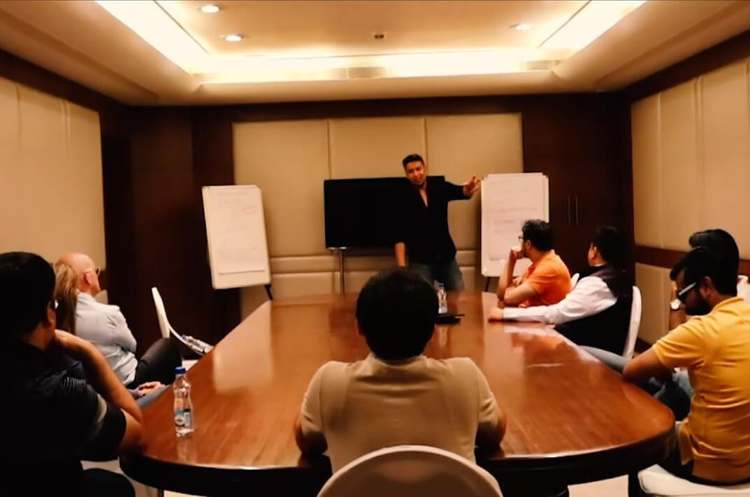
Leadership training for politicians can strengthen democracy: Across the world, public trust in democratic institutions is being tested. The crisis is not rooted merely in ideology or partisanship, but in a growing competence gap among political leaders. Many South Asian democracies, in particular, face the challenge of navigating complex governance transitions with leaders who often lack the training or experience to manage modern administrative systems. Citizens expect elected representatives to make informed, ethical, and effective decisions — yet many arrive in office without an understanding of budgeting, regulation, or public policy. The result is a persistent mismatch between political authority and administrative capability, undermining both policy quality and institutional credibility.
Leadership competence has long been assumed to develop naturally through experience or political instinct. But governance today demands more than instinct. From digital transformation to fiscal management and climate policy, the state now operates in a space where decisions are deeply technical and interlinked. It is unrealistic to expect untrained leaders to perform effectively when democracies themselves have evolved into large, data-driven enterprises. Civil servants undergo rigorous preparation, yet elected leaders — who ultimately make the decisions — are rarely offered comparable training. This imbalance is beginning to show in the weakening of public institutions.
READ I India at COP30: From mitigation to adaptation leadership
Democratic cost of unprepared leadership
The price of this leadership deficit is visible across both emerging and advanced democracies. In younger democracies, untrained leaders often mismanage public finances or stall reforms, creating openings for inefficiency and corruption. In more mature systems, policymakers sometimes lack the technical literacy to oversee complex portfolios, leading to populist decisions, policy reversals, or ill-considered legislation.
The contradiction lies at the heart of democracy itself: it values representation and inclusiveness, but effective governance demands competence. The goal, therefore, is not to restrict political participation, but to ensure that those who stand for office are equipped to govern once elected. Training leaders strengthens democracy; it does not dilute it.
Global models leadership training for politicians
Several countries have experimented with ways to combine democratic openness with administrative skill-building. Finland’s political parties, for instance, run candidate training programmes before elections, familiarising prospective leaders with policymaking, ethics, and public administration. In Rwanda, the Leadership Academy blends civic education with management training, improving administrative capacity at multiple levels of government.

Closer home, short-term governance workshops in Indian states and in Indonesia’s local councils have enhanced transparency, public service delivery, and community engagement. These experiences demonstrate that structured learning, rather than elitist credentialism, can strengthen political competence without limiting democratic choice. Well-designed training builds not just administrative knowledge but also ethical awareness, empathy, and accountability — qualities often sidelined in personality-driven politics.
Role of political parties in grooming leaders
Political parties remain the first and most influential gatekeepers of leadership quality. Yet, across much of South Asia, they have largely abdicated this role. Candidate selection is driven by loyalty, lineage, or financial clout rather than administrative ability or public service orientation. In contrast, parties in countries such as Germany or the United Kingdom have long relied on internal academies and structured mentorship to prepare future leaders for public office.
Introducing similar institutional mechanisms within Indian or regional parties — for instance, mandatory induction workshops or mentorship systems for first-time candidates — could raise the overall competence of those who enter electoral contests. Without reforming the way parties groom and nominate their representatives, any leadership training programme will remain a peripheral exercise.
Institutionalising candidate readiness
A logical next step for democracies facing a competence gap is to institutionalise leadership training programmes for those aspiring to public office. These could begin as voluntary initiatives but, over time, evolve into an integral part of political party nomination or electoral commission processes. The purpose is not to create barriers to entry, but to ensure that all candidates — regardless of background — have a foundational understanding of how government functions, how public money is managed, and how accountability is maintained.
Leadership training programmes should introduce candidates to the practical aspects of public administration and budgeting — the nuts and bolts of how policies are designed, implemented, and financed. Few elected officials realise how budgetary priorities shape governance outcomes or how fiscal decisions ripple across sectors. Familiarity with these processes would make political decision-making more grounded and less susceptible to populist improvisation.
Training in ethics and accountability would be equally critical. Democracies routinely confront conflicts of interest, opaque decision-making, and eroding public trust. A leadership training module on ethical conduct could help future leaders recognise the boundaries of public office, manage conflicts transparently, and uphold integrity in environments where political pressure is constant.
An understanding of constitutional and legal frameworks is another essential element. Many political controversies arise from a simple ignorance of the limits of authority — whether in executive overreach, disregard for due process, or casual violation of citizens’ rights. A working knowledge of the Constitution and the legislative process would strengthen the rule of law by making elected representatives aware of both their powers and their constraints.
Equally important is the ability to make evidence-based policy decisions. In an age where misinformation shapes public debate, leaders must be able to read data, evaluate research, and discern credible sources. Training that encourages analytical thinking and data literacy would make policy debates more substantive and less rhetorical.
Finally, crisis leadership and communication skills deserve focused attention. Modern governance demands calm, credible public engagement — especially during disasters, conflicts, or social unrest. Preparing candidates to communicate transparently, handle media scrutiny, and manage emergencies would not just improve crisis response but also build public confidence in institutions.
These modules, delivered through short, focused courses, could be offered by universities, national academies of governance, or independent think tanks. The model need not be cumbersome or elitist; even hybrid or online formats can serve the purpose if they are designed with clarity and rigour. Political parties, academic institutions, and electoral bodies could collaborate to design these programmes, aligning them with the specific administrative and developmental contexts of each country.
If implemented thoughtfully, such leadership training would not act as a gatekeeping device but as a leveller — raising the baseline competence of all who enter public life. In the long run, this investment in leadership capacity would strengthen not just governments, but democracy itself, by ensuring that those entrusted with power are equipped to use it responsibly and effectively.
Financing and institutionalising training
Equally critical is clarity on who funds and administers these training initiatives. If they are to be credible and non-partisan, a collaborative institutional model would be essential. The Election Commission could set the baseline framework, while academic and civic institutions manage curriculum design and delivery. Funding could come from a mix of public resources and philanthropic partnerships, much like the leadership development programmes supported by the UNDP or the OECD in emerging democracies.
By institutionalising such frameworks within national academies of governance or independent foundations, countries can ensure that leadership training does not depend on the whims of individual governments or electoral cycles.
Incentivising participation, overcoming resistance
For these programmes to succeed, incentives must be carefully designed to encourage participation and overcome political resistance. Many senior politicians may perceive structured leadership training as bureaucratic interference or an elitist imposition. The answer lies in positive reinforcement rather than compulsion.
Parties could link training completion to candidate recognition, campaign funding eligibility, or access to party platforms. Similarly, national or state-level legislatures could offer continuing education credits for sitting legislators. Digital platforms could make such modules accessible to grassroots leaders who lack time or resources for in-person sessions. Unless training is woven into the political ecosystem with clear rewards, the best-designed programmes will struggle to gain traction.
Bridging academia and governance practice
For universities and research institutes, leadership training offers an opportunity to make research directly useful to democracy. Departments of political science, public policy, and management already produce extensive work on ethics, institutions, and decision-making. By partnering with election commissions or civic education bodies, they can translate this knowledge into practical learning for political actors.
In turn, studying the effects of such programmes would create a new research frontier: Does leadership training improve legislative performance? Does it reduce corruption or enhance trust? Measuring these outcomes could transform competence-building from a moral argument into a data-driven reform agenda.
Investing in democracy, investing in competence
Ultimately, voters and civil society have a role in sustaining the demand for competent leadership. Public debate should move beyond personality and rhetoric to focus on preparedness, ethics, and governance skills. Civil society organisations, media, and civic education platforms can amplify this awareness by evaluating candidates not merely on populist appeal but on their readiness to govern.
When citizens begin to reward competence as much as charisma, democracies will naturally produce better leaders and stronger institutions. Competent leadership is not a technocratic luxury; it is a democratic imperative. As societies grow more complex, relying on elected leaders to “learn on the job” has become untenable. Structured training for those seeking office would not weaken democracy but make it more resilient, responsive, and accountable.
For South Asia — where democracies are young and institutions still consolidating — investing in leadership training could pay dividends in public trust, fiscal stability, and policy continuity. Ultimately, ensuring that political leaders understand governance is an investment in democracy itself — one that yields returns in the form of better decisions, stronger institutions, and deeper legitimacy.
Abdullah Al Mahdi is a researcher in public management and governance reform. He is currently studying at the Institute of Cost and Management Accountants of Bangladesh. The views expressed in this article are personal.
